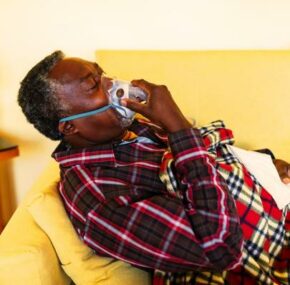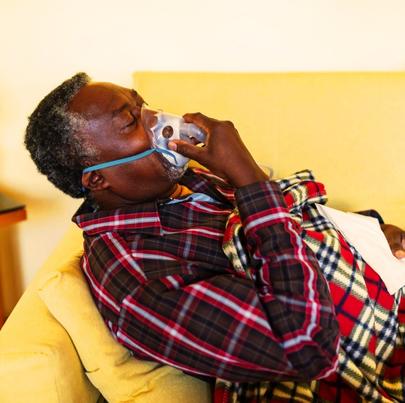Nursing home residents are especially vulnerable to community-acquired pneumonia which can lead to serious infections, prolonged illness, and death.

Community-Acquired Pneumonia
Community-acquired pneumonia is commonly found in nursing homes and long-term care facilities where most residents are over 65 years of age. Due to age, weakened immune systems, and existing health problems, community-acquired pneumonia can easily be transmitted between residents in a short period of time. For residents with chronic lung problems or heart conditions, community-acquired pneumonia can quickly present life-threatening conditions.
Pneumonia is an infection that causes air sacs in the lungs to fill with fluid causing inflammation. When this happens, a person may experience a variety of uncomfortable and/or dangerous symptoms including:
- Persistent coughing with phlegm
- High fever with shaking chills and sweating
- Nausea, vomiting, and diarrhea
- Chest pain and shortness of breath
- Low body temperatures
- Mental confusion
In nursing homes and long-term care facilities, community-acquired pneumonia is commonly seen by family members and nursing home lawyers. It is easily transmitted by different bacteria, viruses, and fungi and spreads quickly in a nursing home setting.
Bacteria
In the United States, Streptococcus is the most common cause of bacterial pneumonia. It can easily occur following a common cold or the flu due to a weakened immune system and affect one or both lungs. Even in nursing homes with clean, sanitary conditions, bacteria can be passed to residents through food, personal activities, and shared items. It’s often difficult to monitor healthcare workers who provide meals and aid to nursing home residents.
Viruses
Nursing home residents are particularly vulnerable to viruses that cause colds, the flu, and pneumonia. While some cases of viral pneumonia are mild, others cause severe symptoms. The COVID-19 virus took a significant toll in Illinois nursing homes. Since the pandemic began, 46% of nursing home deaths have been directly linked to COVID-19. In Illinois, chronic under-staffing has been linked to nursing home neglect and abuse alleged in many wrongful death lawsuits filed by Illinois personal injury lawyers.
Fungi
Fungal pneumonia is most often seen in people with weakened immune systems and chronic health problems which make up a large population of elderly nursing home residents. The Centers for Disease Control and Prevention (CDC) refers to fungal pneumonia as a “silent epidemic” because symptoms are found in many other illnesses. In some cases, infections can cause chronic pneumonia. Infections can spread throughout the body or to the brain causing meningitis, and even death.







